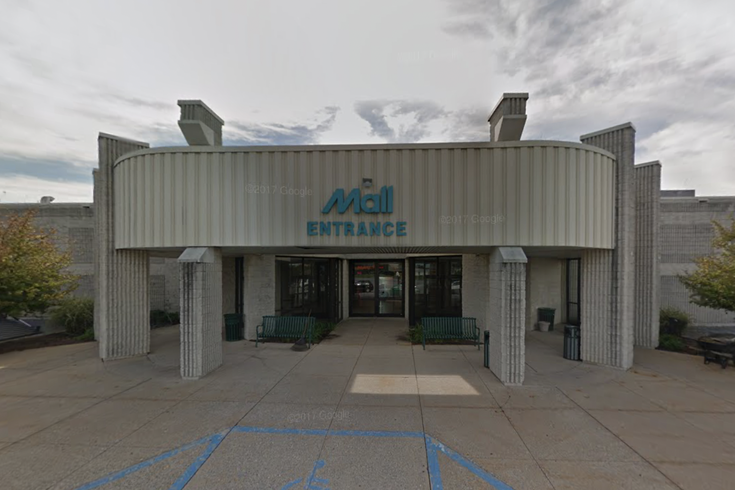
April 22, 2024
 StreetView/Google Maps
StreetView/Google Maps
The former Chambersburg Mall in Franklin County, pictured above, is one of many shuttered malls in Pennsylvania. State lawmakers are considering a bill that would offer tax abatements to developers to construct residences at old malls.
As shopping malls across Pennsylvania close or struggle to stay afloat, state lawmakers are considering a bill that would permit cities and towns to offer tax credits to developers who construct housing at these vacant properties.
Last week, the state House passed a bill that would incentivize developers to take risks on revamping vacant shopping centers and strip malls that have increasingly become community eyesores. Malls in general have been dragged down by the rise of online shopping. From a peak of about 2,500 malls in the 1980s, only about 700 remain in the country — including 56 in Pennsylvania.
House Bill 1799, introduced by state Rep. Josh Siegel (D-Allentown), would allow localities to offer 10-year tax abatements to developers who overhaul shuttered and underutilized malls with new mixed-use projects. Developers would be required to meet certain provisions to qualify, including creating a minimum level of "attainable housing" — defined as residences for households that make no more than 60% of the area's median income — and keeping at least some units in multifamily projects rent-restricted.
The law would give discretion to individual municipalities in shaping the terms of eligibility at malls in their communities. For the first 10 years, 100% of eligible tax assessments would be exempt. Developers also would have the opportunity to get additional two- or five-year exemptions if they maintain their housing requirements, include open green space, increase energy efficiency and install renewable energy systems that cover 50% of the project's average electricity needs.
“Redevelopment of old shopping malls and abandoned strip malls is an opportunity that is not only good for those who live here but is also good for those looking to start a business or move their pre-existing business here," Siegel said last week. "Not only would this project provide attainable housing options to those living in the community, but the special tax provisions also would allow developers to build competitive projects and make a vital investment in our housing stock.”
Proponents of the legislation believe it could help address a housing crisis in Pennsylvania that's been made worse by restrictive zoning laws. More stringent limitations on developers have meant that many projects can't be built as freely or expansively as they were in past decades. Even renovations of older residential buildings can be derailed by the costs of compliance to make updates, leaving developers to seek variances that take time and money to obtain.
As a safeguard, the bill would allow municipalities to recoup some of the exempt taxes if properties that receive the abatement are found to be violating laws and regulations.
The bill also calls for the creation of an advisory committee in the General Assembly to bring together experts who can provide guidance on land use and the redevelopment of shopping malls.
Siegel's bill passed the House with a narrow bipartisan vote of 106-95, with some concerns about whether the abatement may be too generous in certain cases, the Center Square reported.
Owners of shoppings malls already have tried to revitalize their properties with plans to construct housing that either replaces or supports existing retail. In Bucks County, construction is underway on a residential project that would bring 600 upscale units to the Oxford Valley Mall in Middletown Township, owned by Simon Property Group. Mall owner PREIT, which recently exited bankruptcy and went private, has envisioned housing projects that would bring thousands of units to its properties in Plymouth Meeting, Willow Grove and Moorestown in South Jersey.
A listing for the Neshaminy Mall in Bensalem, put up for sale earlier this year, says one of the property's selling points is its potential for multifamily residential development. And numerous other malls across the state are either closed or considered dead, from the Chambersburg and Exton Square malls to several in Harrisburg. The central part of the state has the fewest remaining malls that still operate.
The bill still needs to be debated and passed by the Senate before going to Gov. Josh Shapiro (D) for final approval.